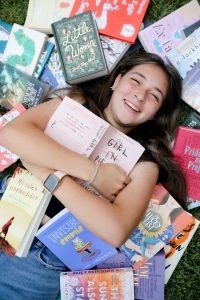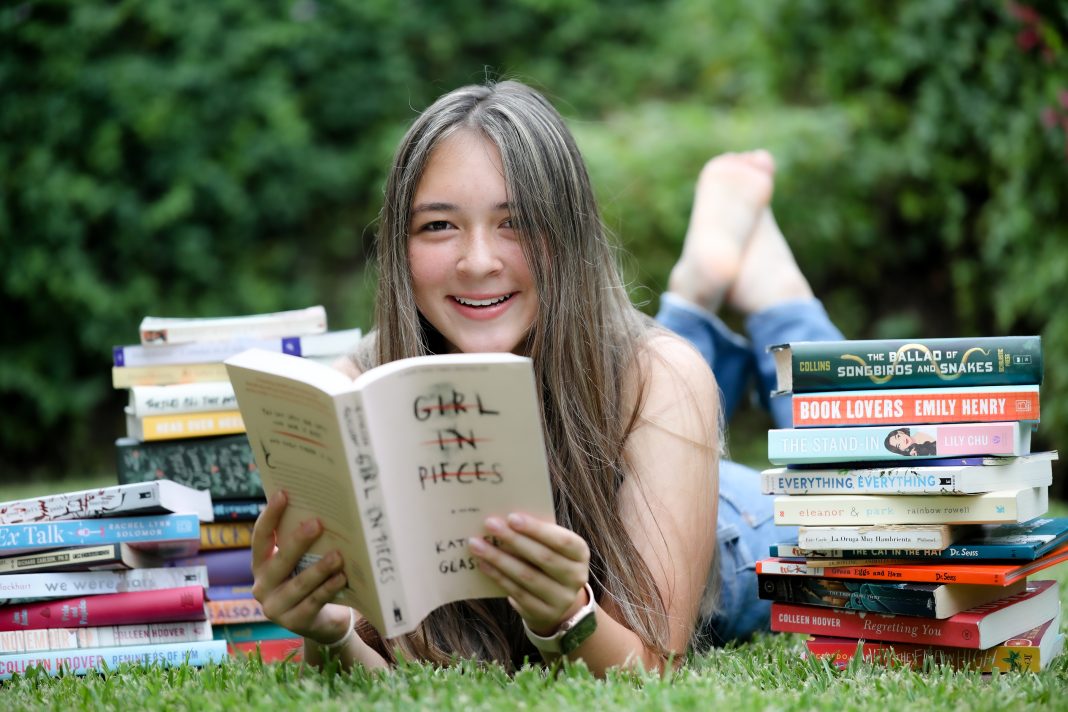I’ve always been a reader—even when it wasn’t cool. Even when it was considered “nerdy” by others. The feeling of meticulously selecting a book from a shelf or from a trending reading list transports me into any world I crave.
My journey as a reader started off at an early age. My parents always read to me and told me stories before bed. Since they were both journalists, they never ran out of interesting adventures to tell me about. On the other hand, it wasn’t as simple during the day. My introverted personality made it a little hard to make friends and I, at the ripe old age of 7, didn’t know how to anyway. Luckily, you only need a couple of good friends to fend off loneliness. Playing soccer gave me a chance to interact with other kids, but I still looked forward to and craved my alone time at the end of every day.
As I grew up and decided that it was too childish to have your parents tell you stories, I realized that something needed to fill that void. After I tried dance classes, art classes, and more, Mom and Dad encouraged me to start reading. It started off with what I thought were simple chapter books; I later came to realize that those books were actually very advanced for a first grader. Soon enough, the aroma of books became a staple in my backpack and my vocabulary soared as my brain absorbed new words and phrases like a sponge in water. Reading grew into a perfectly healthy vice. I’d plow through an entire series of books in a week or two.
As many of us have heard before, good things often come with a downside. Kids my age started to label me as geeky and started to tell me that I should become a librarian when I grew up. Even though that wasn’t really an insult, their ill-intentioned comments were meant to be hurtful. Books became my safe space. They couldn’t hurt me or judge me. I could be free. If I wanted to be an outgoing person, I just had to open a book with a quirky and extroverted character. If my heart desired to be a detective, I could become one in an instant by flipping open an exciting mystery book. Books were my very own time and space machine.
As I matured, so did my ability to interpret books. Deep personal connections started forming. I could profoundly relate to these characters, as I now could grasp the tone of a text or a character’s flaws and ambitions. Finding books like “The Cupcake Diaries” by Coco Simon shaped certain aspects of my life. They helped me navigate through various problems, ranging from drama with friends to certain confidence issues I had. Instead of being scared to grow and evolve as a person, I found that an entire world of characters with their own insecurities were available for me to read about and use as an example. It was naive to believe that they would solve all of my problems, but to some extent, they really did help, showing me the true powers that books held within their pages.
Again, reading comes with its difficulties. For example, there’s a reader’s biggest nightmare: the infamous reading slump. Alex Portée, writing for Today.com, described it as “a phase when reading loses its luster, even for the most avid of readers.” It is feared by every bookworm. Dread infiltrates your mind, with the terrible thought of starting to lose interest in one of your most precious hobbies. It still happens to me to this day. Sadly, there is no set technique to exit said slump. The only way is to find another book in order to reignite the spark. Of course, these slumps apply to other areas and hobbies in life. The most important part is to highlight that they are a true test of interest. The will to want to read again has to be voluntary, and an effort has to be made.

Some parents may worry when their child lacks interest in reading. As a teenager with parents who are very much present in their daughter’s life, I can confidently say that forcing kids to do something makes them want to do it less. Fueling love for books is similar to helping kids mature: every individual has to explore and experiment in order to acquire individual values, interests and dislikes. Leaving kids to reflect and giving them space to figure themselves out is what triggers fixations on certain hobbies.
Similarly, some kids may wonder why books don’t have the same effect on them that they have on their friends. Again, it all depends on preferences. The best way to get into reading meaningful material is to spot what area of your life the book should target. For example, if you’re lacking affection, a romance book will most definitely make you more enthusiastic to keep reading. Not forcing things is the best way to decipher whether a hobby is worthwhile. In this day and age, determining what we’re passionate about is a massive task. Everything is broad and open-ended. But the unknown shouldn’t scare us: it should encourage us.
In short, reading shaped who I am today—from fantasy, to mystery, to romance. Just like a plant, I have grown into a better version of myself. I’ve faced my share of adversity, but I can say with certainty that books and reading are weapons that prepared me for multiple situations and obstacles. My very own cheat sheet. My escape. My fountain of knowledge. All of this spawning from words on a paper waiting to be read, waiting to be construed.






